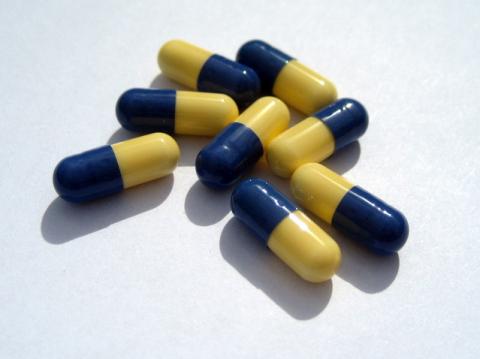
The U.S. House of Representatives health committee unveiled a discussion draft of a new bill designed to cap a Medicare patient's out-of-pocket spending in the "Part D" prescription drug benefit.
America's sickest seniors should be delighted by the news. Capping patient out-of-pocket spending will ensure they can access the drugs they need to live healthy lives. Congress should see this effort across the finish line.
Medicare Part D has been the poster child of popular, budget-friendly government entitlements since its launch in 2006. Today, roughly 43 million seniors rely on Medicare Part D to access necessary medications.
Beneficiaries are largely pleased with their coverage; fully 8 in 10 seniors say their drug plan is "a good value."
Part D's unique structure is one reason for this success. The government subsidizes coverage, but private insurers administer each plan. This forces insurers to compete with one another to create high-value, low-cost options to earn customers' business.
It's this competition that keeps prices at bay – for beneficiaries and the government. The average patient premium in 2019 is just $33.19. And Part D's program costs were 45 percent lower than predicted after a decade.
But for some, the program isn't all sunshine and rainbows. The sickest beneficiaries – many of whom take multiple drugs – spend a small fortune on medicines. That's because most plans require them to pay a certain co-insurance or co-pay fee for each prescription they pick up.
Consider that in 2016, the latest year for which data is available, more than 800,000 Part D enrollees spent $5,000 or more at the pharmacy counter.
High out-of-pocket costs aren't simply a financial concern; they're also a threat to patient health. Studies show that high out-of-pocket costs are associated with increases in medication non-adherence.
When seniors don't take their prescriptions as directed, their conditions worsen, and they often require more expensive medical care down the line. Medication non-adherence is responsible for 10 percent of hospitalizations across the country. It also costs our healthcare system up to $289 billion every year.
Lawmakers want to improve Part D for these patients. In their draft bill, they've proposed eliminating beneficiary out-of-pocket costs for seniors who have spent at least $5,100 on prescription drugs for the year.
Capping patient out-of-pocket spending would provide some serious relief to these beneficiaries. Seniors will have a financial safety net should they fall ill and require expensive medications.
The draft discussion legislation shows a lot of promise -- and it's one that patients and lawmakers should support.
Peter J. Pitts, a former FDA Associate Commissioner, is president of the Center for Medicine in the Public Interest.
...